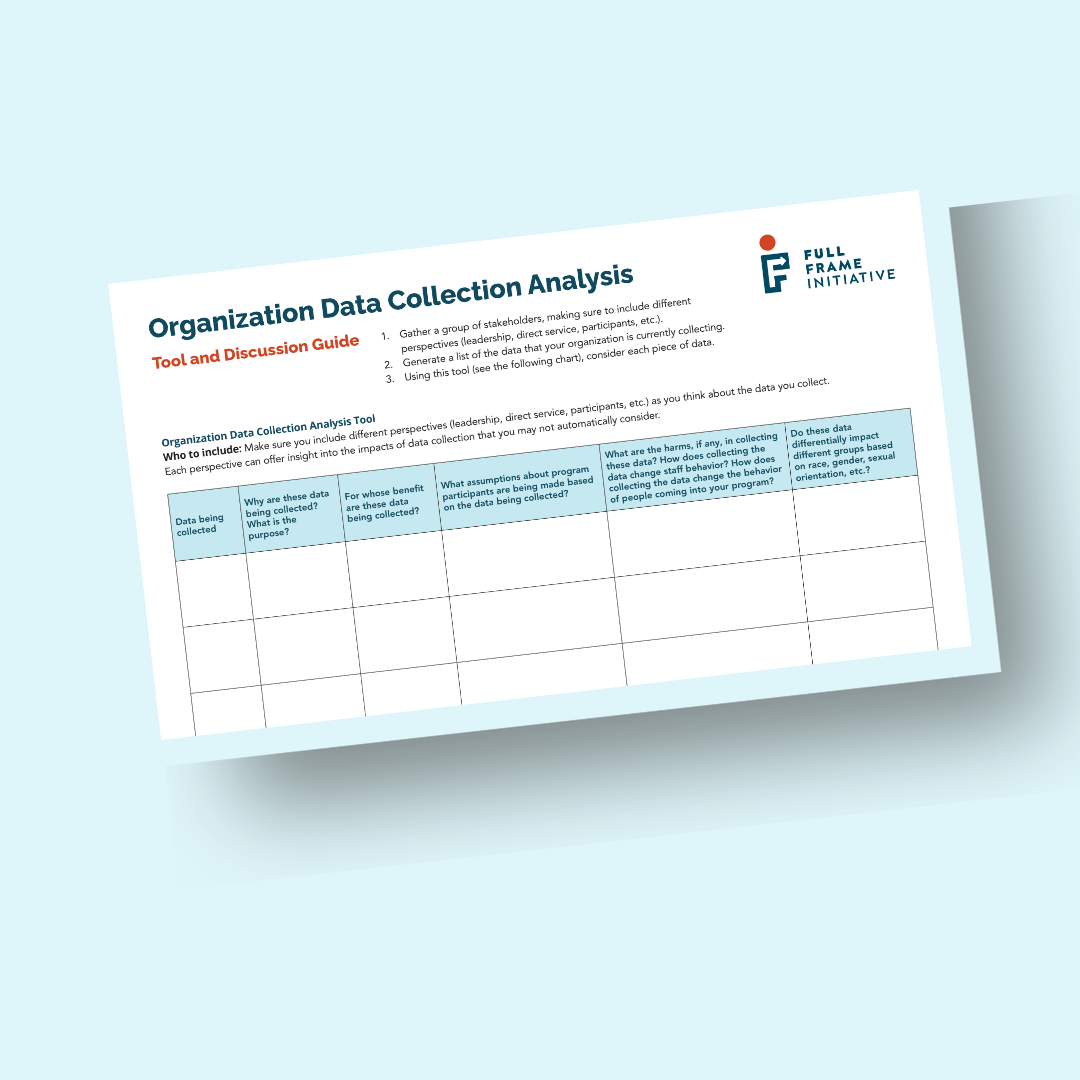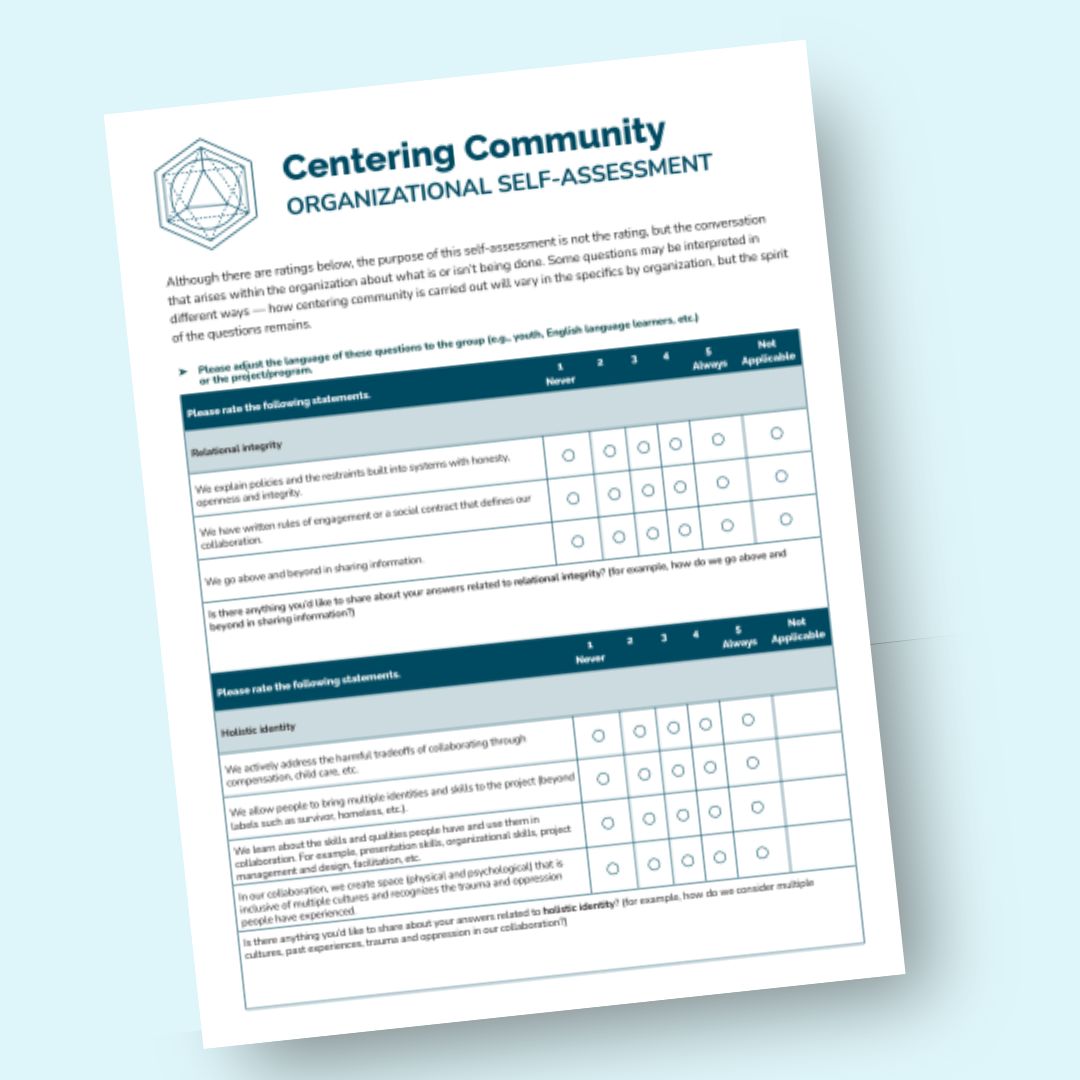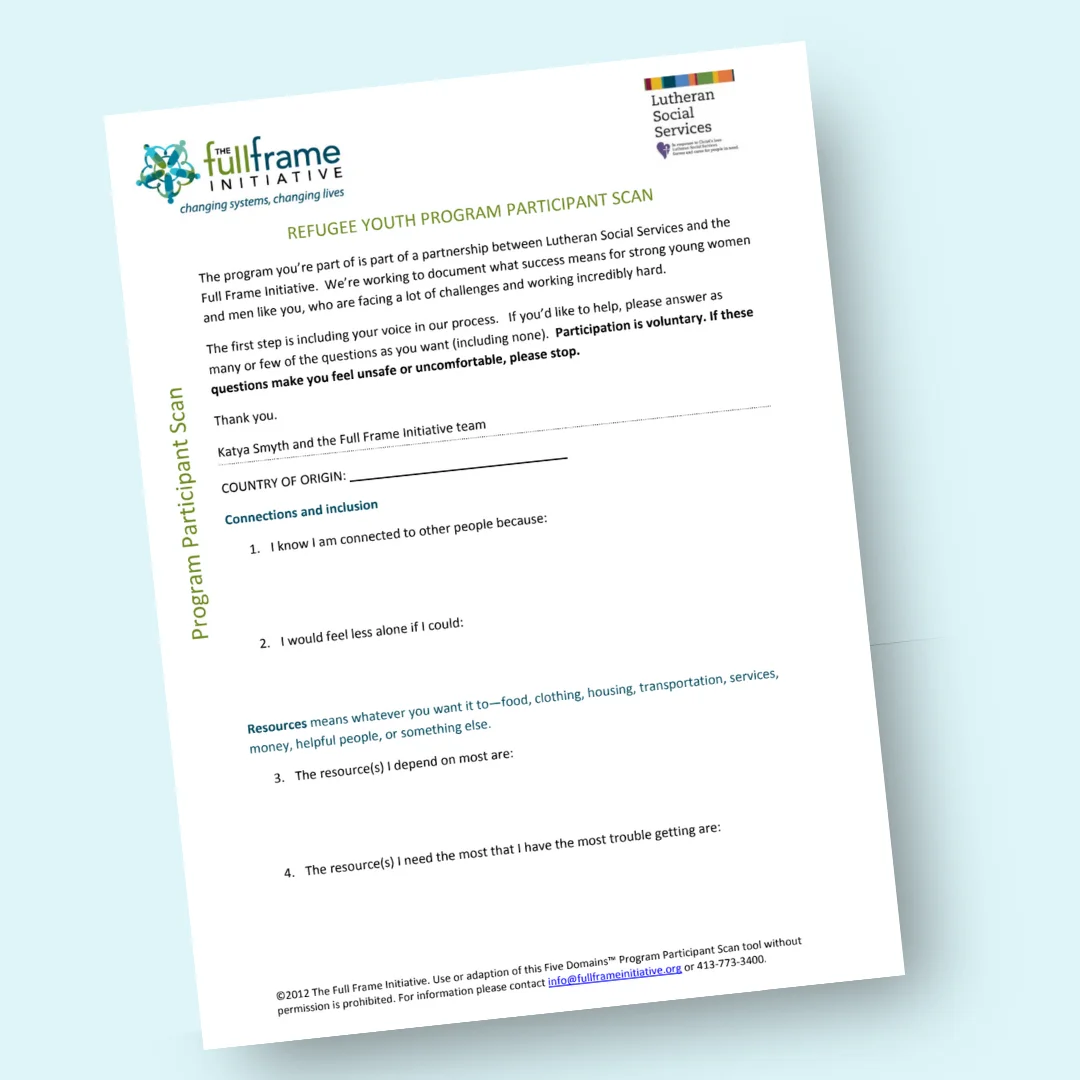
How we collect data, what data we collect and what we consider to be success impacts our practices and what we prioritize in programming, sometimes to the detriment of equity and wellbeing.
This tool will help you:

How effectively is your organization centering community? Use this tool with the Community Bill of Rights to guide conversations around what is or isn't being done to center community in your organization.

These tools collect information from program participants in a refugee youth program and foster parents and staff.

Template for a treatment plan for youth interacting with the juvenile justice system.